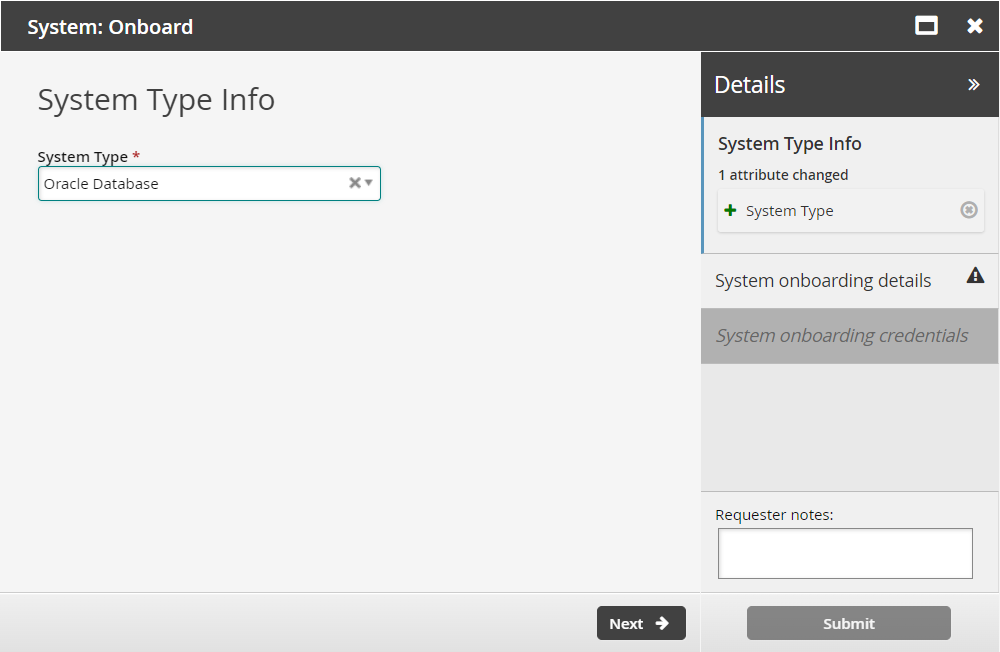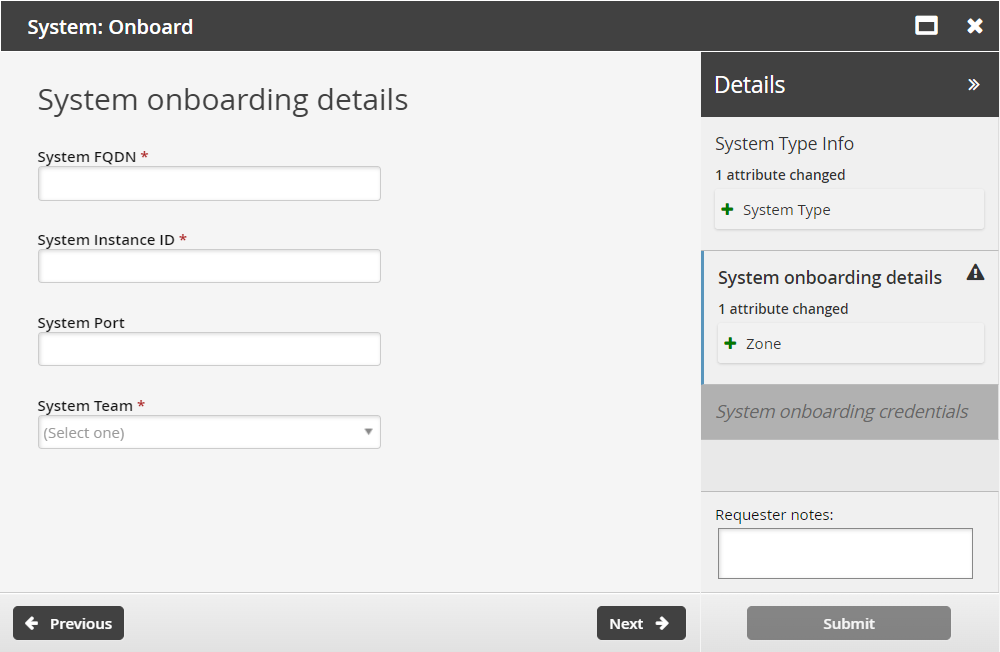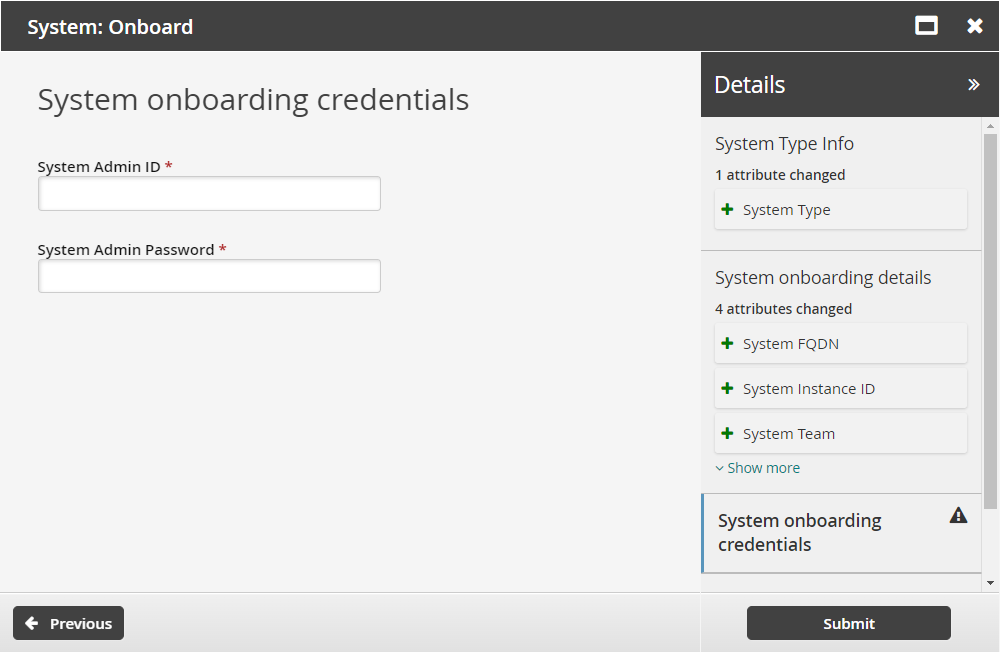Onboarding a system
Users assigned as system trustees can use the System: Onboard request to onboard a system.
Click below to view a demonstration:
From the home page, click Manage resources.
Click System: Onboard.
Select a System Type from the drop-down menu.
Valid system types depend on the scenario components installed, and can include:
CentOS
Windows Server
Oracle
MSSQL
Vault System
Red Hat Enterprise Linux
SUSE Linux
Solaris 10+ Server
Vault systems are null targets that can be used to simulate a target system that cannot be targeted another way.

Click Next .
Enter system onboarding details. including the System Team, the team that will be able to access the system. Depending on the system type, other attributes may include:
System FQDN The system’s fully qualified domain name
System Team the team that will be able to access the system
System Instance ID (Oracle)
System Port Format: 1-65535
Zone The proxy zone or network (Windows, optional)
See Example: Expose the ZONE attribute for an example of how to configure this attribute.
Connect using managed account (Windows, optional)
See Example: Expose the USE_MANAGED_CREDENTIALS attribute for an example of how to configure this attribute.

Click Next .
Enter System onboarding credentials as required.
For Windows systems, if Connect using managed account was selected in the previous step, you must enter the account ID to use for target system credentials.

Click Submit.
Bravura Security Fabric notifies authorizers to review the request if required.
Click the View request link at the top of the page to view the status of the request.
Once the request has been approved, account trustees can manage accounts on this system. Systems are onboarded in real time; there is no need to wait for auto discovery to load the system into the database.
API automation for system onboard
Once the API has been configured (See ”SOAP API” in Bravura Security Fabric Remote API (api.pdf) and your script has been authenticated to the API (Login or LoginEx API calls), the WF API calls can be used to create an API request.
Use the WFPDRSubmit function to create a workflow request and submit the request for publishing.
When submitting a request, use "ONBOARD_SYSTEM" as the PDR ID. The request uses the following attributes:
attrkey | value |
|---|---|
SYSTEM_TYPE | The system type:
|
FQDN | The fully qualified domain name of the system to be onboarded. |
INSTANCE | Optional: System Instance ID (Oracle system type only). |
PORT | Optional: System port (format: 1-65535) |
ZONE | Optional: Proxy zone. Leave it blank if not using proxy server. |
MS_TEAM | The team that the system will be assigned to |
USE_MANAGED_CREDENTIAL | T to use a managed credential, F to use system credentials. |
ADMIN | Administrator ID of the system. Leave it blank if USE_MANAGED_CREDENTIAL is set to T. |
ADMIN_PASS | Administrator password of the system. |
SYS_UUID | A universally unique identifier that will be used as the target ID of the onboarded system (Optional). |
MANAGED_ADMIN | The account GUID of the managed account being used as the admin credential. Leave it blank if USE_MANAGED_CREDENTIAL is set to F. |
ONBOARD_SYSTEM batch request sample:
"SYSTEM_TYPE","FQDN","ZONE","MS_TEAM","USE_MANAGED_CREDENTIAL","ADMIN","ADMIN_PASS","SYS_UUID" "WINNT", "AMS-WIN8-7M9.corp1.domain","none","TEAM-000000","F","Administrator","F00bar123","d39b55f0-7a6a-487a-abe4-bd8c9ec1679c"